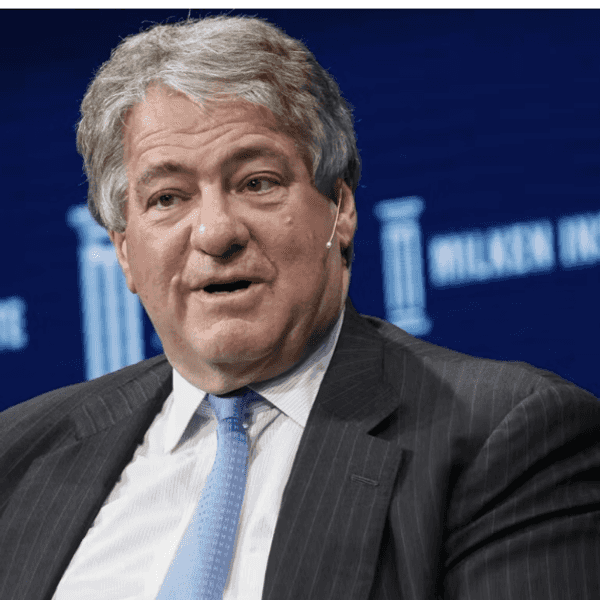
Michael Flynn
Reprinted with permission from Alternet
President Donald Trump's pardon of his former National Security Adviser Michael Flynn, released on Monday evening by the Justice Department, revealed just how sweeping — and fundamentally corrupt — the act of clemency was.
It didn't simply cover the charge of lying to the FBI about his interactions with the Russian ambassador during the 2016 transition, which Flynn had pleaded guilty to before trying to withdraw his plea. Instead, it offered a pardon:
for the charge of making false statements to Federal investigators, in violation of Section 1001, Title 18, United States Code, as charged in the Information filed under docket number 1:1 7-CR-00232-EGS in the United States District Court for the District of Columbia; for any and all possible offenses arising from the facts set forth in the Information and Statement of Offense filed under that docket number or that might arise, or be charged, claimed, or asserted, in connection with the proceedings under that docket number; for any and all possible offenses within the investigatory authority or jurisdiction of the Special Counsel appointed on May 17,2017, including the initial Appointment Order No. 3915-2017 and subsequent memoranda regarding the Special Counsel's investigatory authority; and for any and all possible offenses arising out of facts and circumstances known to, identified by, or in any manner related to the investigation of the Special Counsel, including, but not limited to, any grand jury proceedings in the United States District Court for the District of Columbia or the United States District Court for the Eastern District of Virginia.
This would appear to include the crimes Flynn admitted to but wasn't formally charged with, including acting as an undisclosed agent of Turkey while serving on the 2016 Trump campaign.
Most striking of all, though, is the fact that the pardon covered "any and all possible offenses within the investigatory authority or jurisdiction of the Special Counsel appointed on May 17, 2017." That refers to former Special Counsel Robert Mueller, who was appointed to oversee the Russia investigation after Trump fired then-FBI Director James Comey. It was Comey's firing, and his subsequent revelation that Trump has pressured him to drop the investigation into Flynn, that spurred then-Deputy Attorney General Rod Rosenstein to appoint Mueller.
The whole point of having a special counsel, particularly in this case, was to protect the investigation from the real or perceived influence of the president, whose interests were directly impacted by the probe. In a system of government like that of the United States, there's a fundamental problem posed by the fact that the president, as the head of the executive branch, may be unaccountable to the laws the rest of the country must obey. The special counsel regulations are meant to circumvent that problem by providing some measure of independence to the investigators.
But the president's pardon power short-circuits that workaround. And indeed, it featured heavily in the Mueller report, which detailed a credible case of obstruction of justice against the president based, in part, on his dangling of pardons to key associates of his implicated in the investigation. When the president uses the pardon power in this way, it undermines the reasons special counsels are called for it all. It essentially gives the president the ability to put himself and his allies above the law. It may, in fact, have prevented the special counsel from uncovering additional crimes that it failed to find sufficient evidence to prove.
Actually issuing a pardon that specifically covers all the conduct covered by the special counsel's investigation turns the whole concept of accountability for the president into a joke.
This is especially true in this case, because there is no plausible justification for the pardon. Flynn has retracted his admission of guilt, and he hasn't been sentenced for his crimes. His lawyer, Sidney Powell, has turned the court proceedings into a ridiculous spectacle. His cooperation in related federal cases fell through. And even if one thought the specific charge of lying to investigators was unwarranted or unfair, that's not a justification for pardoning any other potential crimes that might have fallen into the purview of the special counsel's investigation. Parts of that investigation that were spun off from the original case may be ongoing, and they may include serious but still undisclosed wrongdoing on Flynn's part. To justify the pardon, one has to buy in completely to the preposterous conspiracy fictions alleged by Trump and his allies about a "deep state" cabal trying to take down the president.
In addition to the special counsel, there are supposed to be two other checks on a president's power. The first is Congress, which has the power of oversight and impeachment. But this mechanism failed when it became clear there was only one Republican vote to remove Trump in the Senate, where a two-thirds vote of the chamber would have been needed. The other is the electorate, which did successfully vote Trump out of office on Nov. 3, perhaps in part because of the corruption he's displayed in matters such as the special counsel's investigation. And yet the precariously designed electoral system permits the president to retain his office for more than two months after being voted out, giving him ample time to issue unjustified pardons to cronies like Flynn that are essentially unreviewable. That's a serious flaw for the rule of law in our system, and those who care about good government should demand a solution.
- Judge Orders New Hearing On Justice Department's Favor To Flynn ... ›
- Barr Openly Promotes Trump's Dictatorial Ambitions - National Memo ›
- Sidney Powell, Flynn's New Lawyer, Is Conspiracy Theorist And Fox ... ›
- Why Trump Must Think Twice Before He Gives A Pardon To Mike ... ›
- By Pardoning Flynn, Trump Underlines General's Guilt — And His Own ›
- Trump Pardons Paul Manafort, Charles Kushner, And Roger Stone - National Memo ›
- Trump Corrupted The Pardon Power — And We May Need A Radical Solution - National Memo ›
- Army Falsely Denied Role Of Flynn's Brother In 'Key' Phone Call During Capitol Riot - National Memo ›
- Federal Prosecutors May Indict Capitol Rioters On Racketeering Charges - National Memo ›
- VIDEO: Flynn Jokes About Assassination While Brandishing Assault Rifle ›
- Special Counsel's Expanding Probe Imperils 'Kraken' Lawyer Sidney Powell - National Memo ›








